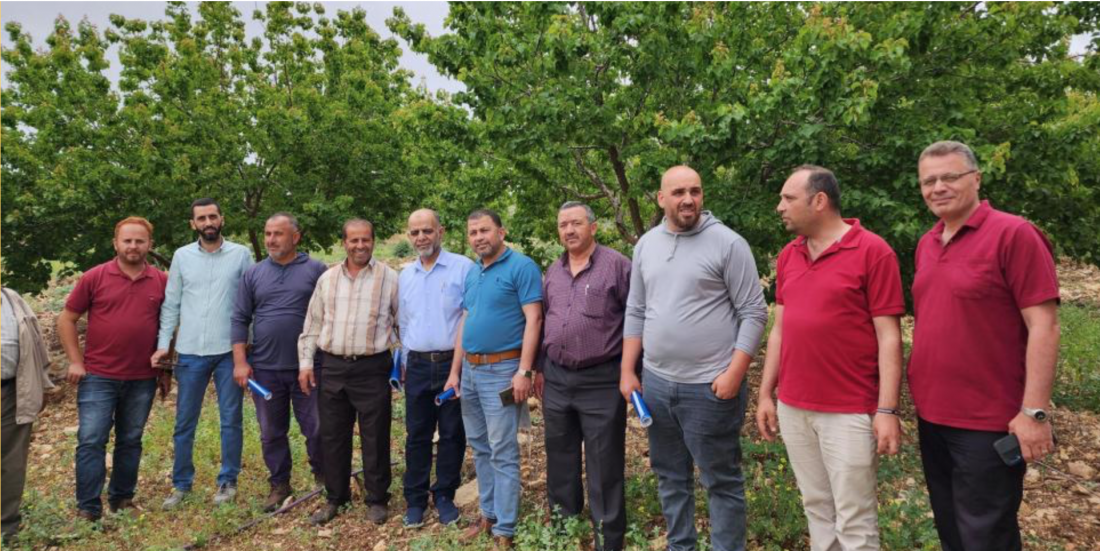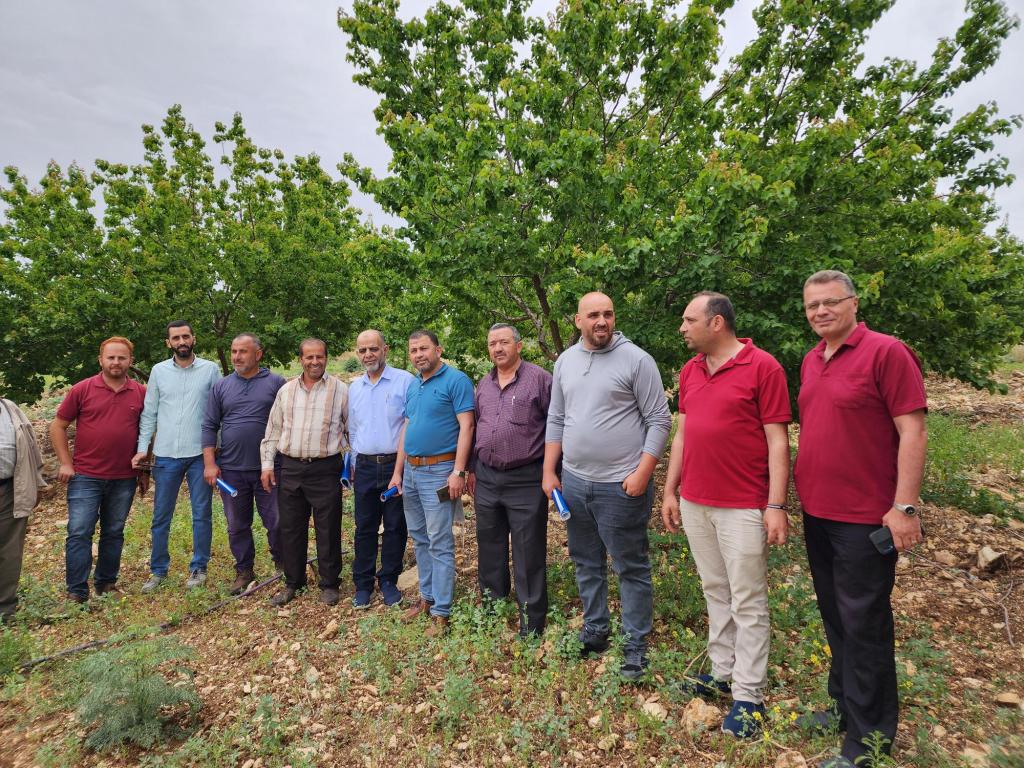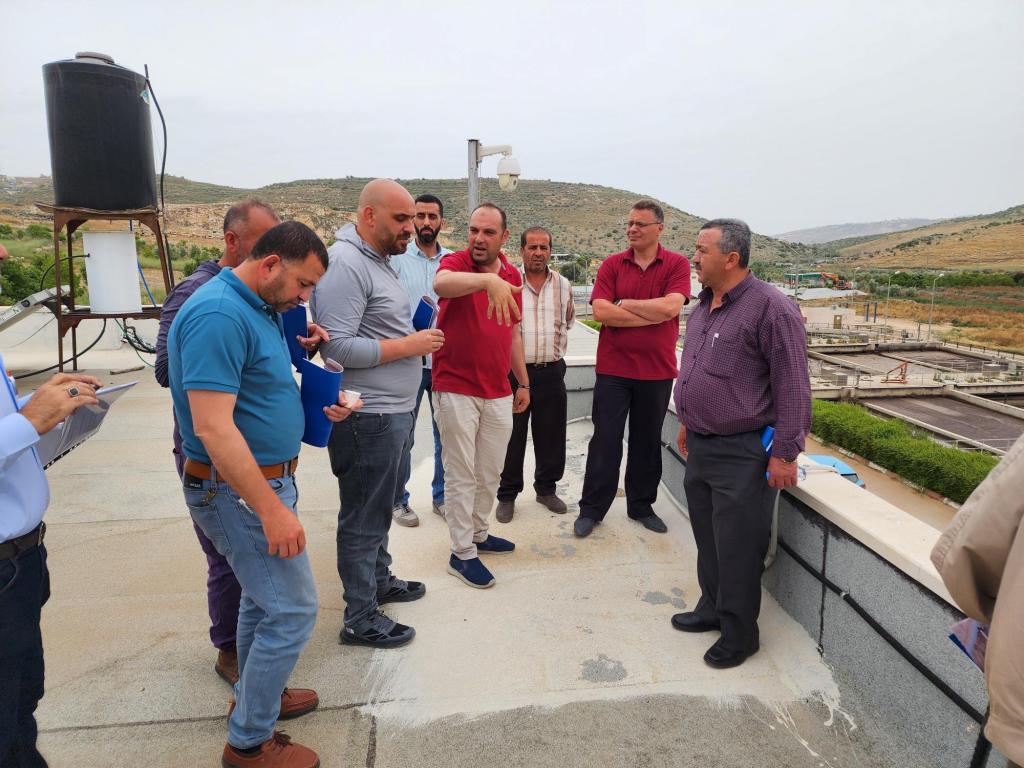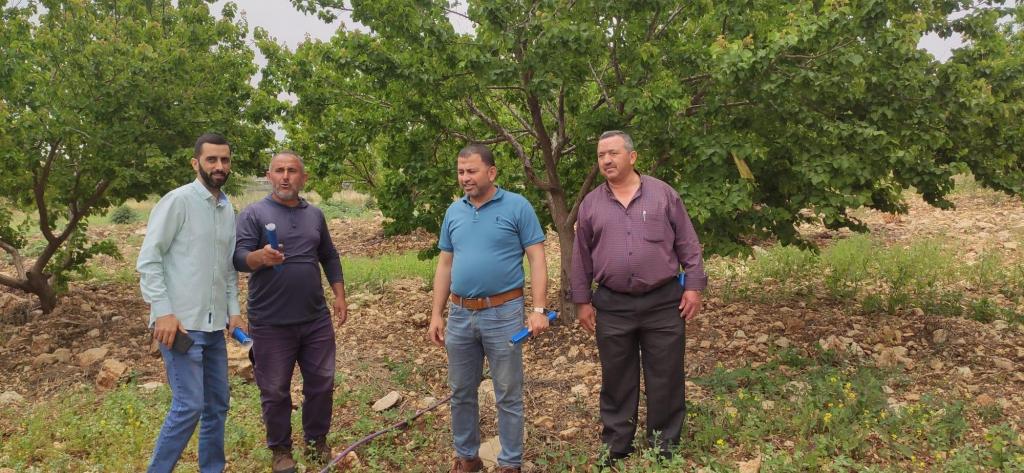MENAWARA exchange visit showcases successful reuse projects and wastewater treatment plant in Palestine

As part of the MENAWARA initiative, an exchange visit was organized to provide Palestinian farmers with first hand exposure to successful case studies and reinforce the knowledge they have gained throughout the project. The visit aimed at demonstrating the practical applications of the project's principles and techniques.
The visit began with a screening of a video that explained the functionality and components of the wastewater treatment plant (WWTP). The WWTP, which became operational in July 2013, has a daily design flow capacity projected to reach 15,000 units by 2023. The treated wastewater generated from the plant fully complies with the quality standards set by the Palestinian Water Authority and the Ministry of Agriculture, making it suitable for various reuse purposes.

The WWTP caters to a population of 150,000 people in the Nablus West region, including the villages of Beit Wazan, Zawata, Beit Eba, Qusin, and Deir Sharaf. The presentation highlighted the successful reuse projects implemented in the vicinity of the WWTP. Currently, more than 3,000 donums (approximately 750 acres) of land are irrigated using the treated wastewater. The irrigation projects include a planned scheme for 3,000 donums, of which 160 donums are already being served. The system incorporates various filtration methods, such as sand filters and ultraviolet treatment, to ensure the quality of the reused water.
During the visit, the participants were given a comprehensive tour of the WWTP, where the technical team explained the different components and processes involved in wastewater treatment, from the inlet to the outlet. The participants also had the opportunity to visit the laboratory where regular analyses are conducted to monitor the quality of the incoming and outgoing water.

One of the highlights of the visit was the exploration of the reuse plots, which featured crops such as avocados and almonds. The participants engaged in lively discussions about the irrigation schemes and observed the similarities between the systems in place and those implemented in Beit Dajan, such as subsurface and drip irrigation. The visit left a positive impression on the participants, particularly the productive avocado trees, which were a novelty to many. They expressed interest in implementing similar plantation techniques and also shared valuable insights on how to maintain the quality of the treated effluent.
The exchange visit organized by MENAWARA served as a platform for farmers to witness the progress made in wastewater reuse in the region surrounding the WWTP. By showcasing successful projects and facilitating discussions, the initiative aims to inspire the adoption of sustainable practices and encourage further exploration of wastewater reuse techniques. With the enthusiasm and interest displayed by the participants, it is clear that the visit has contributed to their understanding and appreciation of the potential of wastewater reuse in agriculture.










